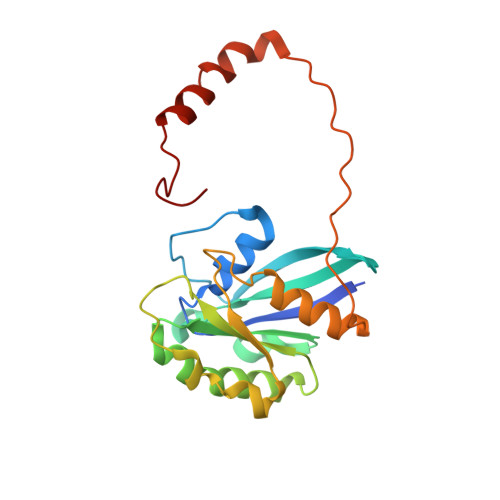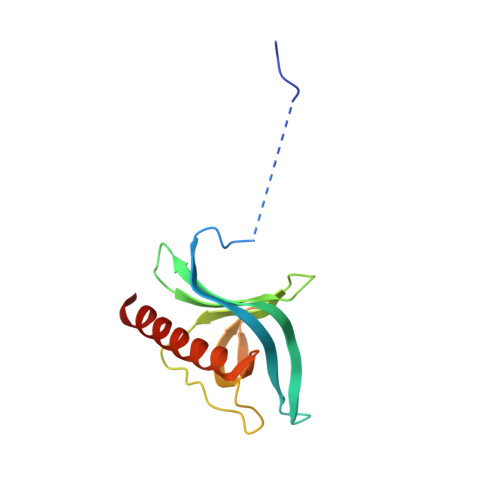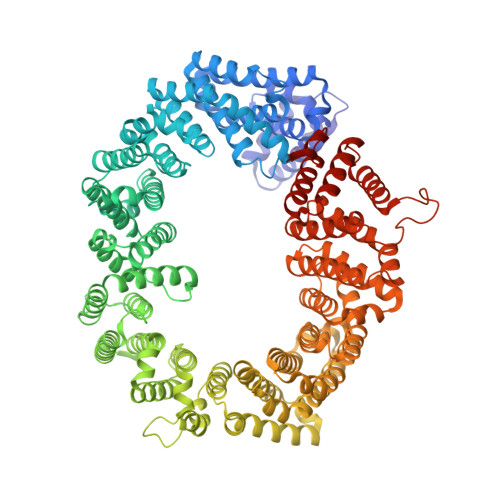Discovery of Aminoratjadone Derivatives as Potent Noncovalent CRM1 Inhibitors.
Jian, L., Zscherp, R., Beutling, U., Shen, X., Xu, S., Zhang, X., Bronstrup, M., Klahn, P., Sun, Q.(2023) J Med Chem 66: 11940-11950
- PubMed: 37595020
- DOI: https://doi.org/10.1021/acs.jmedchem.3c00549
- Primary Citation of Related Structures:
8HQ3, 8HQ6 - PubMed Abstract:
Cancer cells frequently utilize elevated nuclear export to escape tumor suppression and gain proliferative advantage. Chromosome Region Maintenance 1 (CRM1/XPO1) mediates macromolecule nuclear export and plays an important role in tumorigenesis and progression. The clinical approval of its covalent inhibitor KPT-330 (Selinexor) validates the feasibility of targeting CRM1 to treat cancers. Here, we synthesized four aminoratjadone derivatives and found that two of them, KL1 and KL2 , are noncovalent CRM1 inhibitors. The two compounds underwent spontaneous hydrolysis in aqueous buffers, and the resulting products were more active against CRM1. High-resolution crystal structures revealed the CRM1-binding mode of these compounds and explained the observed structure-activity relationships. In cells, KL1 and KL2 localized CRM1 in the nuclear periphery and led to depletion of nuclear CRM1, thereby inhibiting the nuclear export and growth of colorectal cancer cells at submicromolar concentrations. This work lays the foundation for further development of aminoratjadone-based noncovalent CRM1 inhibitors.
- Department of Pathology, State Key Laboratory of Biotherapy and Cancer Centre, West China Hospital, Sichuan University, and Collaborative Innovation Centre of Biotherapy, Chengdu 610041, China.
Organizational Affiliation:


























